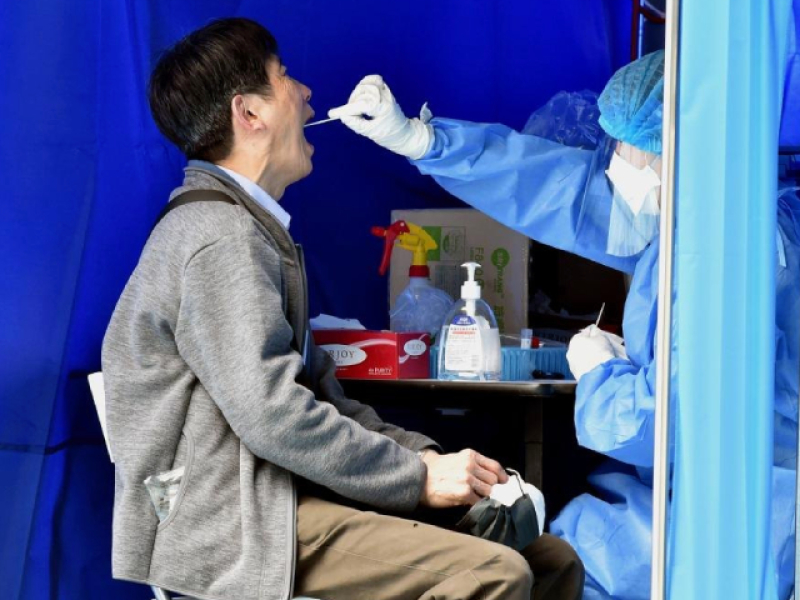
Authorities in China have found a new subtype of the Omicron variant of COVID amongst its 13,000 average new daily infections in the most recent outbreak.
China's state media has announced that scientists have added more than 13,000 new COVID infections, with one case infected with a new subtype of the Omicron variant of the coronavirus. The new subtype of COVID's Omicron variant was isolated from a patient in a city less than 70 kilometers from Shanghai, which underwent a strict lockdown last week.
According to Bloomberg, the new iteration of the coronavirus evolves from the BA.1.1 branch of the omicron variant, as found through sequencing data from local health authorities. Scientists said that the COVID variant subtype does not match other coronavirus that is causing a surge in China or any of those submitted to GISAID, the global initiative where scientists all over the world collect sequenced coronavirus data to easily monitor mutations.
The COVID case that was reported on Friday in the city of Dalian in northern China also did not match any coronaviruses detected domestically, the municipal government announced via its WeChat account. Among the thousands of new COVID cases reported in China on Saturday, almost 12,000 were asymptomatic.
Official Chinese state press agency Xinhua reported that Vice Premier Sun Chunlan traveled to the COVID hotspot of Shanghai to oversee prevention efforts and ordered local officials to take control of the outbreak "as soon as possible." On Saturday, new cases in the financial hub of Shanghai had surpassed 8,000, of which 7,788 were asymptomatic. The city is set to undergo a new round of mass testing on Monday.
Sun previously traveled to Jilin to oversee lockdown measures in the northeast province and ordered local officials to "resolutely" implement measures to prevent the outbreak from further spreading. The province's 25 million residents are currently under varied levels of quarantine.
According to The Guardian, the case numbers reported by China are some of the largest since COVID was first detected in Wuhan in 2019. In fact, residents have been ordered to self-test for COVID daily and practice precautions such as wearing masks at home and avoiding contact with family members. These measures were not widely enforced since the begining of the COVID pandemic.
Sun underscored the need for "unswerving adherence" to China's strict "zero-COVID" approach that mandated lockdowns, forced isolation of suspected cases, and required mass testing despite the economic repercussions of such measures.
"It is an arduous task and huge challenge to combat the omicron variant while maintaining the normal operation of core functions in a megacity," Sun admitted. But she pushed for ensuring that key industries and institutions, as well as the functioning of supply and industrial chains remain intact, as well as ensuring that "people's basic living conditions and normal medical needs" are met.
"The main task is to completely eliminate risk points and to cut off the chain of transmission so that we can curb the spread of the epidemic as soon as possible," the Shanghai Municipal Health Commission's inspector Wu Qianyu told Reuters.

















